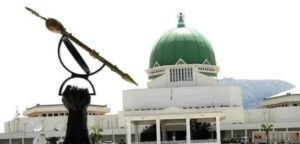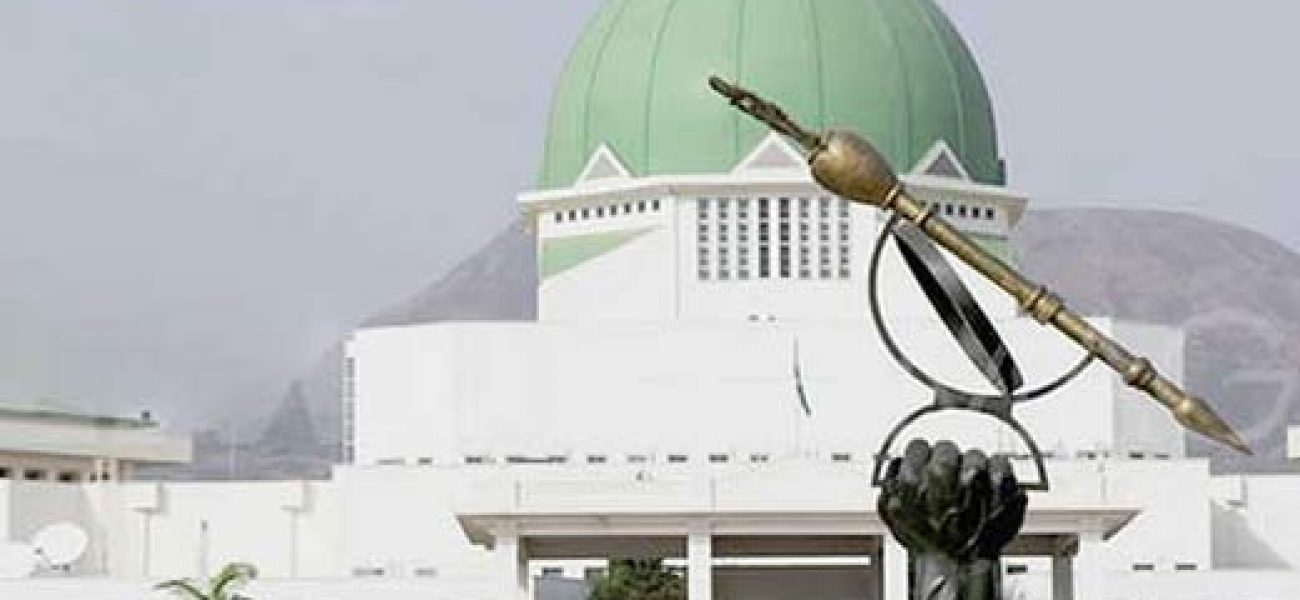 The Minister of Budget and National Planning, Sen. Udo Udoma and the Director-General of the Budget Office Mr. Ben Akabueze unveiled a draft of the 2019-2021 Medium Term Expenditure Framework (MTEF) and the Fiscal Strategy Paper at a public consultation comprising of civil society organisations, the media, organised private sector and the general public at Rotunda Hall, Ministry of Foreign Affairs, Abuja on Thursday, 18 October, 2018[1].
The Minister of Budget and National Planning, Sen. Udo Udoma and the Director-General of the Budget Office Mr. Ben Akabueze unveiled a draft of the 2019-2021 Medium Term Expenditure Framework (MTEF) and the Fiscal Strategy Paper at a public consultation comprising of civil society organisations, the media, organised private sector and the general public at Rotunda Hall, Ministry of Foreign Affairs, Abuja on Thursday, 18 October, 2018[1].
Although the final version of the document is yet be presented to the Federal Executive Council (FEC) and the National Assembly for approval, it foreshadows what the National Assembly will receive when the 2019 annual budget is laid. The MTEF and FSP are adopted planning tools by the Federal government that define its economic, social and developmental objectives and priorities over a three-year period. Among others, it highlights key assumptions behind revenue projections in the budget and the strategic objectives within the expenditure framework and fiscal target that form the basis for budget preparation under the Fiscal Responsibility Act.
The parameters of the N8.6trillion 2019 budget for instance are premised on an oil production volume of 2.3 million barrels per day at $60 per barrel, an exchange rate of N305 per dollar, an inflation rate of 9.98% and a nominal GDP rate of 3.0%. Also while N6.9 trillion has been projected as available to fund the budget, debt service for the same fiscal year is estimated at N2.1 trillion.
A review of the parameters indicate that the same oil output level of 2.3million barrels per day and exchange rate of N305 per dollar in the 2019 budget are the same with the projections in the 2018 budget, while the inflation rate of 9.98 in the 2019 budget and 3.0% GDP growth rate are lower than what obtained in the 2018 budget at 12.4 and 3.5% respectively. However, the nominal GDP of the 2019 budget projected at 139,811 billion is higher than the 113,088 billion projected in the 2018 budget.
Other key highlights for the 2019 budget from the MTEF and FSP document presented include the following:
| Share of oil revenue | 3,688,282,600,552 |
| Independent revenue | 624,579,910,673 |
| Statutory Transfer | 506,860,342,965 |
| Sinking Fund | 220,000,000,000 |
| Recurrent (Non-Debt) | 4,753,409,587,691 |
| Aggregate Capital Expenditure | 2,793,593,789,919 |
| Total Fiscal Deficit | 2,240,249,536,334) |
| GDP | 139,811,509,172,405 |
These however, highlight some worrying trends. For instance, the recurrent expenditure as a total percentage of Federal Government Expenditure is estimated to rise from 66% in the 2018 budget to 73% in 2019 and peak at 76% in projections for the 2020 budget. Debt service to revenue ratio is also set to rise from 28% in the 2018 budget passed to 31% in 2019 and 38% in 2020 leaving less funds available to deliver on human capital and infrastructural projects. In addition to this, the total fiscal deficit is set to rise from 1.9 trillion in the 2018 budget to N2.2 trillion in 2019 and 2.9 trillion in 2020. However, this figure slightly falls from the 2020 projection to 2.5 trillion in 2021[2].
This burgeoning debt profile appears to buttress Sen. Udo Udoma’s point that there are significant medium-term fiscal challenges with revenue generation and a need for bold, decisive and urgent action to achieve the Federal Government’s goals of fiscal sustainability. This is more so as (barring National Assembly’s intervention), the budget as anticipated is smaller than the N9.12trillion budget passed by the National Assembly in June 2018. However, on a brighter note, there are social interventions that the 2019 budget is likely to bring such as the allocation of over 527 billion naira as pensions, gratuities and retirees’ benefits and the appropriation of 1% of the Consolidated Revenue Fund (about 51 billion) to the Basic Health Care Fund in line with the National Health Act, 2014 among others.
Yet, it is uncertain when the National Assembly will sit and pass the document with Sen. Udo Udoma admitting “early budget passage is unlikely given that 2019 is an election year.” It will be recalled that President Buhari in July, 2018 rejected a Constitution Alteration Bill titled “Authorisation of Expenditure 2” that sought to amend sections 81 and 121 of the Constitution so that a President/Governor presents budget estimates not later than 90 days to the end of the financial year. Civil society groups had advocated for its passage as a remedy out of Nigeria’s errant budget cycle and to encourage fiscal discipline.
[1] 2019-2021 Medium Term Expenditure Framework and Fiscal Strategy Paper: Public Consultation with CSOs, Media, Organised private Sector and the General Public
[2] 2019-2021 Medium Term Expenditure Framework and Fiscal Strategy Paper: Public Consultation with CSOs, Media, Organised private Sector and the General Public

